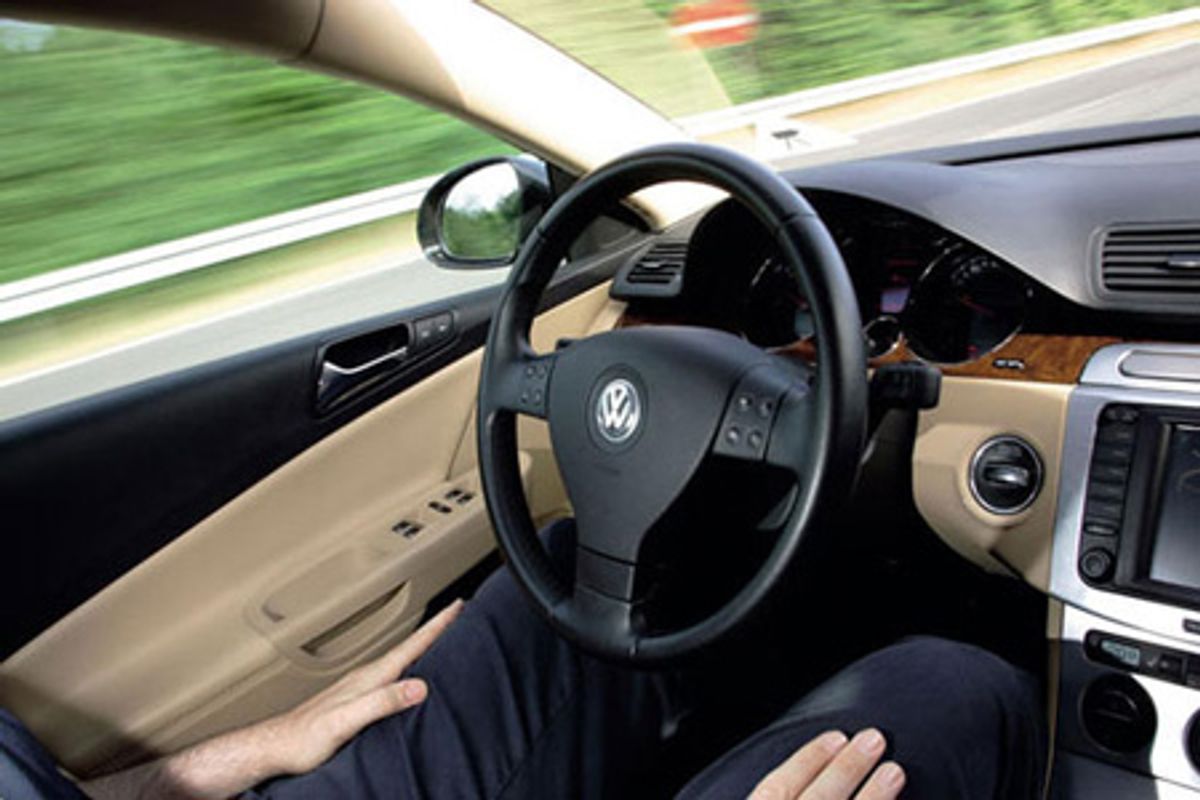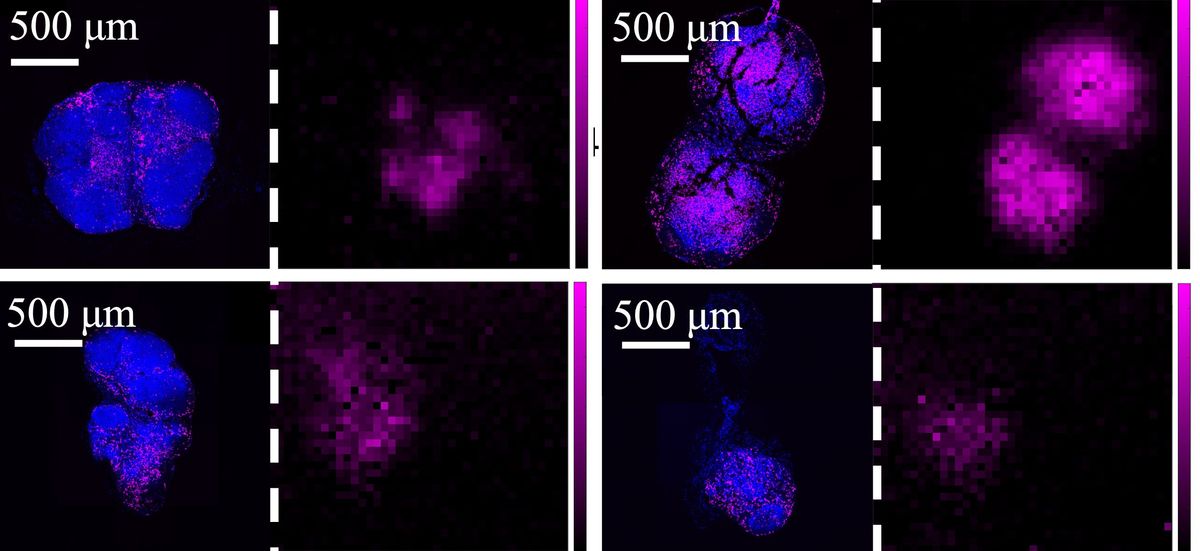We've been wondering why no car company has ever tied lane-assist (which automatically keeps your car in its lane) to adaptive cruise control (which automatically keeps your car a safe distance from cars ahead) to create a fully autonomous highway cruise mode for cars. We're talking about sensor systems that have existed in midrange to high end cars for quite a while (like, years), suggesting that the hold-up hasn't been so much technological as social and legal.
Finally, Volkswagen (who has been a consistent innovator in the autonomous car field) seems to have decided to do the obvious and let lane-assist and adaptive cruise team up to handle your car on the highway without you needing to do anything at all:
The Temporary Auto Pilot (TAP) bundles semi-automatic functions, i.e. functions monitored by the driver, with other driver assistance systems. It combines such automatic systems as ACC adaptive cruise control, the Lane Assist lane-keeping system and Side Assist lane-changing monitoring into one comprehensive function.
In the semi-automatic driving mode – referred to as Pilot Mode, for short – TAP maintains a safe distance to the vehicle ahead, drives at a speed selected by the driver, reduces this speed as necessary before a bend, and maintains the vehicle's central position with respect to lane markers. The system also observes overtaking rules and speed limits. Stop and start driving manoeuvres in traffic jams are also automated. With TAP, it is possible to drive at speeds of up to 130 kilometres per hour on motorways or similar roads. Drivers must still continually focus their attention on the road, so that they can intervene in safety-critical situations at any time.
Sounds awesome, right? It is, except for that (by now obligatory) last sentence that negates one of the primary benefits of an autonomous system: You have to be paying attention to everything you would normally be paying attention to if you were actually driving, meaning that while the car might technically be doing the work for you, the benefit that you gain is severely limited. You can't take a nap, you can't do work, you can't watch a movie. In fact, you can't really relax. And Volkswagen is quite explicit about the situation, as they state in their press release: "the driver always retains driving responsibility and is always in control."
That line was clearly written by a lawyer. In fact, what Volkswagen is doing here is basically just trying to make sure that they're legally covered, and I can't really blame them for it. If they were to say, "hey guess what, your car is driving now, have a beer and go play Angry Birds on your iPad for a while" they'd most likely be sued into oblivion if something went wrong while the car was in control. At the same time, there will come a point at which the benefits of not having that driving responsibility will outweigh the risks, especially as technology gets more reliable (and traffic gets worse).
It's important to note that giving drivers time to space out is definitely the only benefit to an autonomous cruise control system. Volkswagen rightly focuses on the potential for making cars exponentially safer by using all of these fancy sensors in a more active capacity: Even if you're technically in control, your car is still about a thousand times quicker than you when it comes to reaction times, and especially in heavy traffic situations, TAP has the potential to significantly reduce most minor (and likely even major) accidents. You remember Shelley, right? This is what it's all about: Teaching your car to be a better driver than you, and then giving it the chance to keep you out of accidents.
[ Volkswagen ] via [ DVICE ]
Evan Ackerman is a senior editor at IEEE Spectrum. Since 2007, he has written over 6,000 articles on robotics and technology. He has a degree in Martian geology and is excellent at playing bagpipes.




